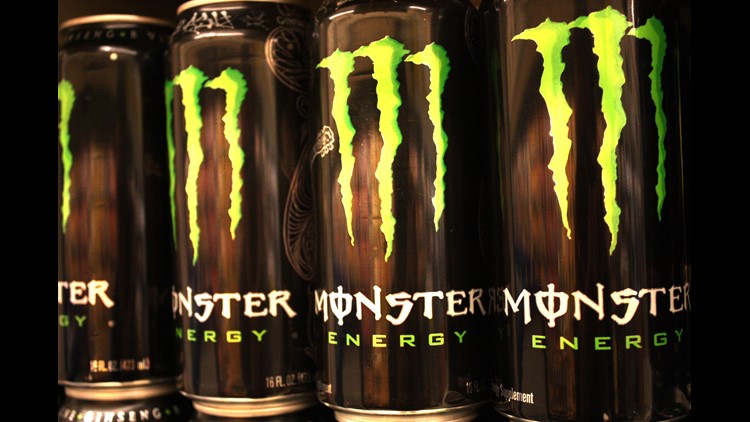MIDDLEBURY, Vt. — It’s time for college students to find another way to gain energy — at least the students at Middlebury College.
The Vermont college has stopped selling energy drinks on campus after a student made the argument to the school’s community council. The community council is made up of students, faculty and staff who have the ability to recommend policies that affect the campus community.
“We’re not ‘banning’ or ‘forbidding’ anything. We’ve simply made a decision to stop selling these products in our own stores. Students — or faculty or staff for that matter — are still free to drink these beverages if they wish, and there are plenty of places in our town where they can be purchased. We just don’t want to encourage or contribute to their consumption,” said Stephen Diehl, Middlebury’s news director.
Cause for concern
Myles Kamisher-Koch, a dining hall intern and Middlebury student, made the case that selling energy drinks on campus went against the school’s dining hall mission statement to “nourish and nurture” students. The drinks promoted poor academic environments and elevated students stress levels, Kamisher-Koch said.
“This does not ban the selling of other caffeinated beverages such as coffee, etc. — only energy drinks,” said Sarah Ray, Middlebury’s media relations director.
The college will stop selling energy drinks on campus on March 7.
Caffeine-related behavior
“I learned in my psychology class that energy drinks are linked to high-risk sex and drug use,” a student supporter, Jenna McNicholas, told the school newspaper, The Middlebury Campus.
While heightened sexual activity and energy drinks have not been directly linked by medical professionals, the consumption of energy drinks has been associated with “risky behavior” and perceived stress levels of college students, according to a study by the Journal of American College Health.
But not all were thrilled with the decision.
“[Students should] drink energy drinks responsibly. The removal of energy drinks from campus stores was too extreme,” student Charles Rainey said.
Suggested caffeine consumption
For healthy adults, the Food and Drug Administration suggests moderate amounts of caffeine are not harmful. The agency considers a “moderate amount” between 100 mg and 200 mg. Other FDA guidance has cited 400 mg a day, “an amount not generally associated with dangerous, negative effects.”
A cup of coffee typically has about 100 mg per 8 ounces, though that number can range depending on the coffee variety.
The FDA says more than 600 mg a day is considered too much, although the impact of caffeine varies based on a person’s size, gender or their sensitivity to caffeine.
Red Bull, a popular energy drink, contains 80 mg of caffeine in one 8.4-ounce can, or about the same amount as a cup of coffee. Monster, another popular energy drink, contains a similar amount of caffeine as Red Bull.
In fact, more than half of the most popular energy drinks on the market had less than 100 mg of caffeine per serving, according to Consumer Reports, though serving size ranges drastically. Those with the highest caffeine content included Rockstar’s Energy Shot, which has 229 mg of caffeine in a 2.5-ounce serving (Rockstar’s general energy drink, which is 8 ounces, has 80 mg of caffeine), and 5-hour Energy Extra Strength, which has 242 mg in a 1.9-ounce serving.
One study of college student energy drink consumption found that 50 percent of students drank at least one to four drinks a month. This year, research documented a jump in energy drink-related emergency room visits, which prompted politicians and consumers to call upon the FDA to look into deaths associated with the drinks.
“Middlebury College respects the work its students, faculty and staff have done in researching the health effects of energy drinks and in making the recommendation that the college no longer sell such drinks in our campus retail outlets,” said Bill Burger, Middlebury’s vice president for communications and marketing, “We hope that this move will contribute to a healthier campus environment.”



